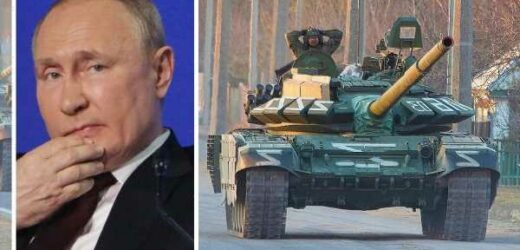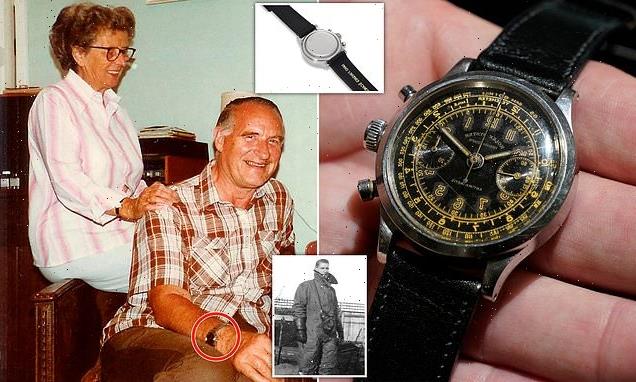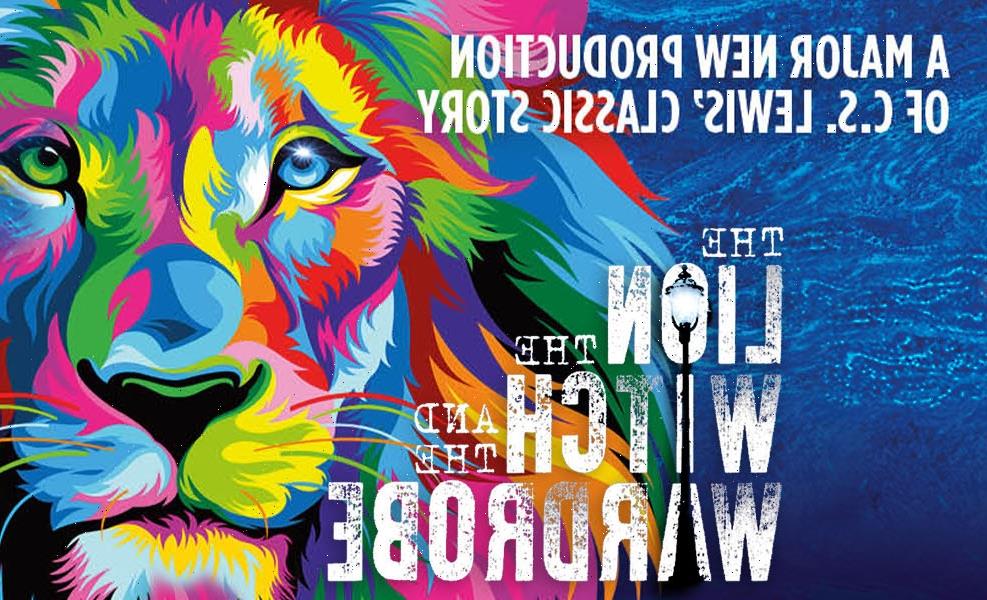Russia: Men wear 'Z' symbol on uniforms during Victory Day parade
We use your sign-up to provide content in ways you’ve consented to and to improve our understanding of you. This may include adverts from us and 3rd parties based on our understanding. You can unsubscribe at any time. More info
Russia has claimed the symbol stands for victory, however, it has been compared by many to a Nazi swastika and has even been banned from being displayed by some Baltic nations. Such is the popularity of the sign in Russia, merchandise has appeared across shops and stores across the country, with the sign also being used in a planned aerial display in Moscow on Victory Day. However, the sign appears to now be attracting negative attention in Russia itself.
In Moscow, inspectors told Sergei Mironov, the head of the A Fair Russia – For Truth party, to take down a banner from his office in the centre of the city, citing “numerous” complaints from members of the public.
Furthermore, in Siberia, a teenager successfully argued banners hanging on the exterior façade of the mayor’s office were in violation of regulations on public advertising.
A similar move was also seen in the city of Perm in which a banner displaying the sign was taken down from a military veterans office.
In an attempt to normalise the sign, children in Russia had initially been seen displaying the logo, however, children who decorated the windows of a cultural centre in western Russia’s Pskov region with Zs and Vs were also instructed to remove the symbols.
A local official told state television that only politically neutral images could be displayed.
Much debate has circulated as to the meaning of the Z symbol.
Some argued it was in order for Russian forces to easily identify friendly units and avoid friendly fire, whilst others stated they indicated the geographical location of the vehicles donning the now familiar large white Z’s.
Abbas Gallyamov, a political analyst said: “It’s possible that the Kremlin is planning a rebrand.
“These two strange letters did not go down very well and so they need to be replaced with something more effective.”
Neither the letter Z nor the letter V exists in the local Cyrillic alphabet, yet both have phonetic equivalents within the language.
Critics have compared the label to the Nazi swastika by labelling the Z as a “Zwastika”.
Mr Gallyamov, a former Kremlin speechwriter, also suggested that the decision to remove the symbols could be a sign that Moscow was looking for ways to end what it calls its “special military operation” in Ukraine.
Writing on the popular social media app Telegram, he said: “It can’t be ruled out… that a decision was made to prepare the people for peace, and so they are starting to get rid of all this visual militaristic symbolism.”
DON’T MISS:
China able to breeze through Taiwan as US defence exposed [REVEAL]
Iran war could trigger ‘catastrophic energy crisis’ [OPINION]
Ukraine boosted as German weapons finally arrive [REPORT]
The notion of the beginning of the end of the war could come from the realisation that Russian losses suffered since the start of the conflict are starting to take a toll on Russian morale.
Reports from The Kyiv Independent suggest over 34,500 Russian soldiers have died in the conflict, with a further 100,00 injured and wounded.
In spite of the huge losses, pro-Kremlin polls suggest over 70 percent of Russians support the war in Ukraine, however, the figures are largely contested as Russian law makes it illegal to discredit the conflict, with a 15-year prison sentence waiting for those who dare.
Russian opposition activist Alexei Navalny’s team have been quoted as saying: “You can’t rely on polls where they ask directly about the war — people are intimidated.”
Pro-war propaganda at state-run nurseries and schools has led to a surge in demand for private education.
Annual fees for private schools in Moscow have shot up by between 20 percent and 100 percent since the invasion, the Moscow Times reports.
One parent said: “Everyone now wants to send their children to private schools where there is hope that the teachers won’t push propaganda.”
However, the message does not appear to have reached all parts of Russia, with one shepherd in Dagestan becoming a viral sensation after spraying his entire herd of sheep with the letter Z.
Critics have compared footage of Z-clad sheep to Russian soldiers who aimlessly follow each other into conflict.
For more stories like this, follow Express.co.uk Defence and Security Correspondent James Lee on Twitter @JamesLee_DE
Source: Read Full Article








